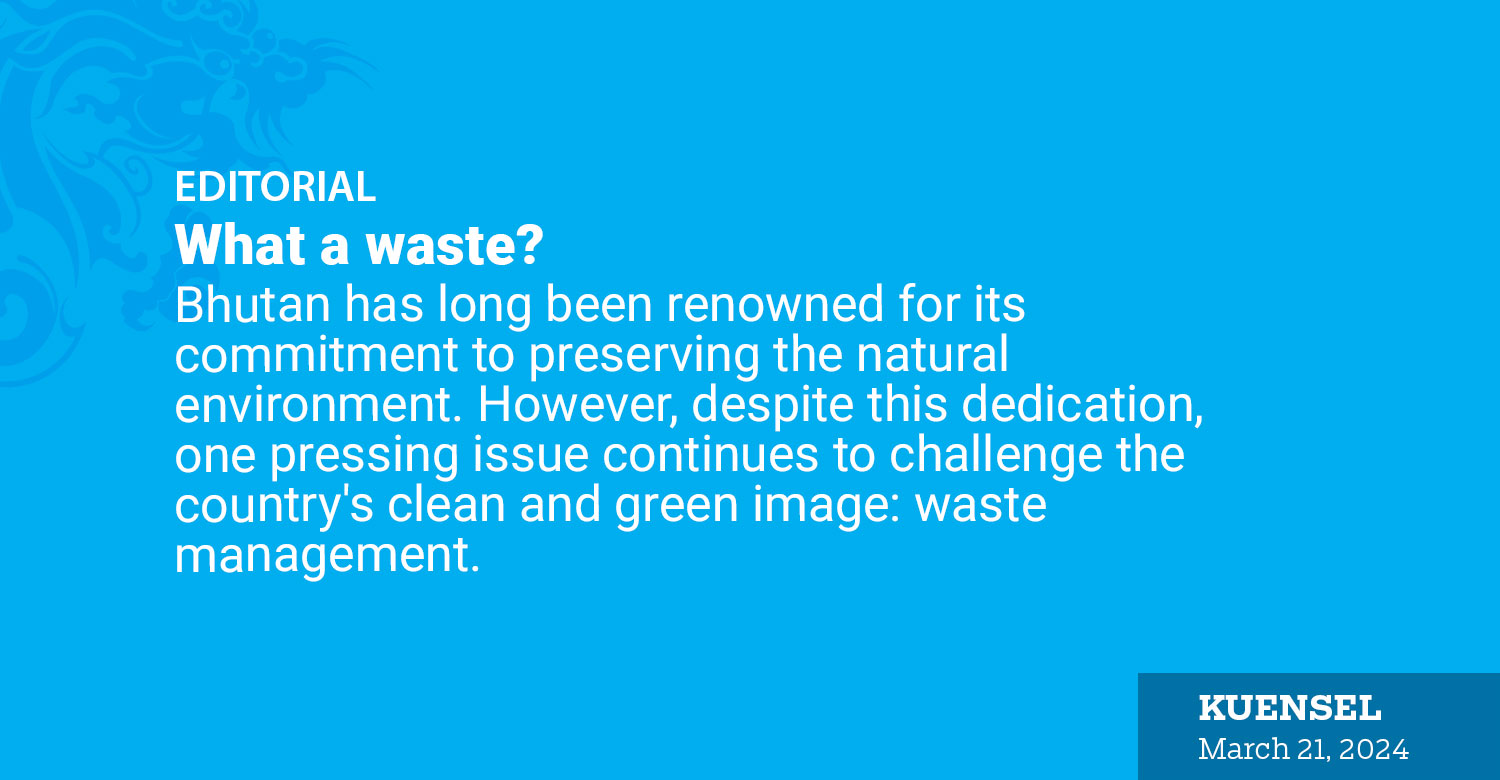Bhutan has long been renowned for its commitment to preserving the natural environment. However, despite this dedication, one pressing issue continues to challenge the country’s clean and green image: waste management.
In the heart of this issue lies the city of Thimphu, where residents produce a staggering 54 metric tonnes of waste each day.
This waste finds its way to the Memelakha Landfill, a towering mountain of refuse that serves as a stark reminder of the challenges we face.
What was intended to be a temporary solution has grown into a permanent eyesore, spanning 3.4 acres and emitting a putrid stench that permeates the air.
The Thimphu Thromde, tasked with addressing this growing problem, finds itself at a crossroads. With the landfill at capacity and no viable options for expansion, urgent action is needed.
Furthermore, the commitment to reduce waste by 80 percent by 2030 adds even more pressure to find a sustainable solution.
Despite ongoing efforts to engage stakeholders and explore potential solutions, progress has been slow.
While initiatives to reduce, reuse, and recycle are commendable, they have failed to make a significant dent in the amount of waste reaching the landfill.
Recently, a diverse group of stakeholders convened to address the specific issue of plastic waste.
Recognising the threat it poses to our rivers, streams, and overall ecosystem, the focus shifted to promoting a circular economy that minimises plastic pollution.
Banning plastic outright is not the answer; instead, we must incentivise alternatives that are both affordable and accessible to the public. By offering viable alternatives to plastic products, we can gradually shift consumer behavior away from harmful single-use plastics.
Ultimately, the success of these efforts hinges on collaboration and innovation. It requires the collective effort of government officials, environmentalists, civil society organisations, and entrepreneurs to enact meaningful change.
Only by working together can we preserve Bhutan’s natural beauty for generations to come.
In confronting the waste management crisis, Bhutan has an opportunity to reaffirm its commitment to environmental stewardship. By embracing sustainable practices and fostering a culture of conservation, we can ensure that our country remains a shining example of harmony between humans and nature.


